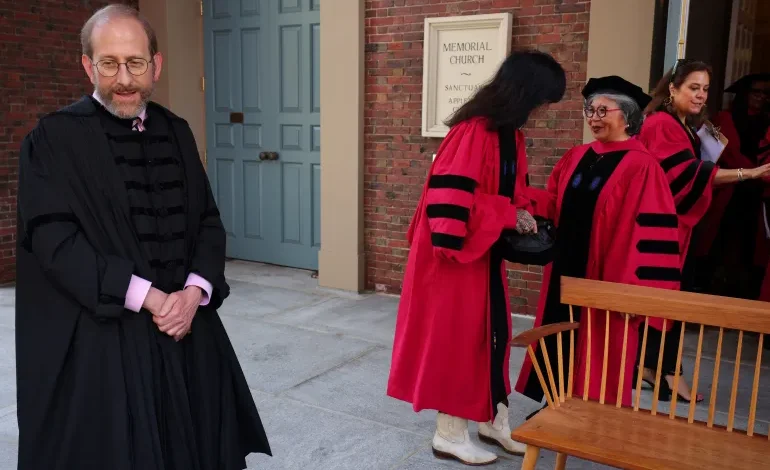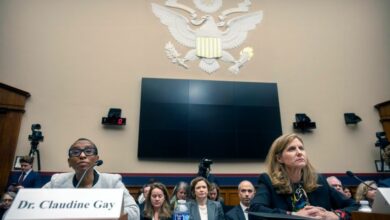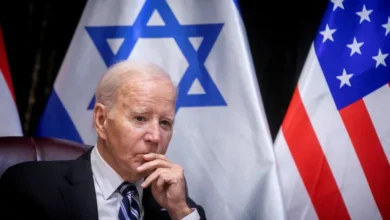Harvard’s $2.3bn gamble: What Trump demanded; how the university resisted

United States President Donald Trump’s campaign to pressure universities into dropping diversity, equity and inclusion measures and punishing student protesters has faced its strongest pushback yet when Harvard University rejected a series of demands from his administration.
Monday’s decision quickly prompted the US Department of Education to freeze nearly $2.3bn in federal funding for the Ivy League institution ranked among the best universities in the US.In a response on his Truth Social platform on Tuesday morning, Trump accused Harvard of pushing “political, ideological, and terrorist inspired” notions rather than acting in the public interest.
So what happened between Harvard and Trump, and why did the institution risk billions of dollars to go against the administration’s demands?
What did the Trump administration ask Harvard to do?
The heads of the US Department of Education, Department of Health and Human Services, and the General Services Administration co-signed a letter to Harvard on Friday. In this letter, they claimed “Harvard has in recent years failed to live up to both the intellectual and civil rights conditions that justify federal investment.”This was followed by a list of demands for the university in Cambridge, Massachusetts, to fulfil. Key among them were:
Promoting faculty committed to the Trump administration’s demands of Harvard, as articulated in the letter, and “reducing the power” of faculty and administrators “more committed to activism than scholarship”.
Ending all affirmative action in faculty hiring and student admissions by August. At the same time, the letter demanded that the university ensure “viewpoint diversity” by abolishing criteria during admissions and hiring processes “that function as ideological litmus tests”.
Changing the admissions process “to prevent admitting international students hostile to the American values”, including “students supportive of terrorism or anti-Semitism”. The letter did not define what it meant by “American values”. For the 2024-2025 academic year, there were 6,793 international students at Harvard, making up 27.2 percent of its total enrolment – up from less than 20 percent in 2006-2007.
Changing disciplinary policies and forbidding the recognition and funding of student groups or clubs that promote “criminal activity, illegal violence, or illegal harassment”.
Implementing a comprehensive mask ban with immediate, serious penalties for violation “not less than suspension” after some students have protested while wearing masks. The letter did not list any exceptions to this rule, such as health reasons.
Closing all diversity, equity, and inclusion (DEI) programmes and offices and carrying out organisational reform to ensure transparency with federal regulators.Harvard was given a deadline of August to implement these changes. This is the second letter issued by the Trump administration to Harvard. The first one was issued on April 3 and called on Harvard to ban face masks and reform academic departments that it alleged were guilty of anti-Semitic bias. Charges of anti-Semitism have been levelled against numerous US universities and colleges since widespread campus protests were held against the war in Gaza.
How did Harvard respond to the demands?
Harvard’s lawyers responded to the Trump administration by saying the university rejected the demands, arguing they violated its First Amendment rights and freedoms recognised by the US Supreme Court. The US Constitution’s First Amendment upholds the rights to free speech, expression and assembly.
The university said Harvard strongly opposes anti-Semitism and continues to make structural changes to ensure that the institution is a welcoming and supportive learning environment for all students.
The university also published a separate letter online signed by President Alan Garber on Monday. In the letter, Garber said federal grants have led to research and innovation in fields pertaining to science and medicine. “These innovations have made countless people in our country and throughout the world healthier and safer,” he wrote.










